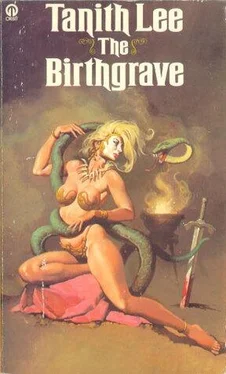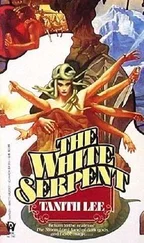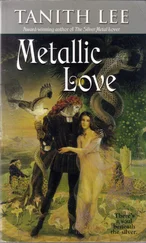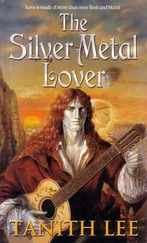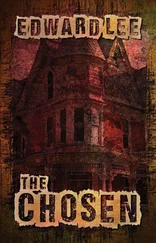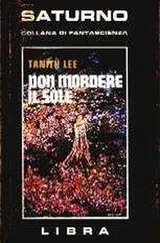Tanith Lee - The Birthgrave
Здесь есть возможность читать онлайн «Tanith Lee - The Birthgrave» весь текст электронной книги совершенно бесплатно (целиком полную версию без сокращений). В некоторых случаях можно слушать аудио, скачать через торрент в формате fb2 и присутствует краткое содержание. Год выпуска: 1977, ISBN: 1977, Издательство: Orbit, Жанр: Фэнтези, на английском языке. Описание произведения, (предисловие) а так же отзывы посетителей доступны на портале библиотеки ЛибКат.
- Название:The Birthgrave
- Автор:
- Издательство:Orbit
- Жанр:
- Год:1977
- ISBN:0-86007-942-2
- Рейтинг книги:3 / 5. Голосов: 1
-
Избранное:Добавить в избранное
- Отзывы:
-
Ваша оценка:
- 60
- 1
- 2
- 3
- 4
- 5
The Birthgrave: краткое содержание, описание и аннотация
Предлагаем к чтению аннотацию, описание, краткое содержание или предисловие (зависит от того, что написал сам автор книги «The Birthgrave»). Если вы не нашли необходимую информацию о книге — напишите в комментариях, мы постараемся отыскать её.
The Birthgrave — читать онлайн бесплатно полную книгу (весь текст) целиком
Ниже представлен текст книги, разбитый по страницам. Система сохранения места последней прочитанной страницы, позволяет с удобством читать онлайн бесплатно книгу «The Birthgrave», без необходимости каждый раз заново искать на чём Вы остановились. Поставьте закладку, и сможете в любой момент перейти на страницу, на которой закончили чтение.
Интервал:
Закладка:
But before I could speak the death words to the blade, a soft lamp filled my brain, cool and green, and very old.
“Yes,” said the no-voice in my skull, “there is always that. If you can find it. Your soul-kin of green jade.”
I jumped up and flung the knife through the image of the mirror so that it shattered. Beyond the door a massive explosion rocked the cavern, and the floor juddered under my feet. I started for the steps.
“Wait,” it said, the he-she thing without a soul. “Remember you are cursed, and carry a curse with you.
You have been asleep in the depths of a dead volcano. Leave it, and it will wake as you have woken.
The red-hot lava will pour out through every passage and pursue you down the mountain. It will cover villages and towns, ruin crops, and burn to death everything living in its path.”
But I scarcely heard. My instinct for freedom was too strong, too terrible. I rushed up the steps, up and up, away from the glowing room and the possession there, into cold darkness that soon lightened. As I paused a moment to rest, leaning against the mountain’s gut, I looked up and saw stars and moonlight pouring in my eyes. Behind me the dark was reddening, and rocked with endless paroxysms of anger or pain. The stench of sulfur filled my belly and head and lungs and made me sick, but I toiled on, my hands like limpets on the stone. At last a ledge, and beyond the ledge the outer slopes of the volcano, running downward into dark valleys. Above, wide now from horizon to horizon, the brilliant sky.
I jumped from the ledge, and, as my feet touched soil, a demon belled in the earth. Sky and earth came toppling together and turned scarlet, and I fell, and continued to fall, down into the night.
2
I fell faster than I could have run, too stunned to be frightened yet. Then I was in a pit, and was stopped like a heart in death. I crawled out, gazed back. The clouds above the grumbling mountain were russet, and the first bright snakes of lava were sliding forth after me. A shower of boiling coals exploded outward, and fell all around me. Black-ash rain filled my eyes and mouth. I wrapped a corner of the dirty garment I wore over my mouth and nose, and fled again.
Down to the valleys. No longer dark. Lights were flying here and there and everywhere, and I could hear them screaming and shouting even over the noise the mountain made. There was no hope for them, for myself. Where would any of us hide from this burning demented hatred?
I was on a road, and scarcely noticed it. I bore away from the first village, ran across an orchard, where already the sparks of the volcano had started a fire. Vines were popping as they blazed. A flock of bleating, terrified sheep came plunging past and were gone.
I ran on. Where was my instinct taking me?
Something snapped with a clang; I stumbled and fell. A wicked little trap had bitten shut on the hem of my tunic, by some miracle missing my bare foot. I wrenched the tunic free, tearing it, and saw ahead the low glitter of water.
A palace pool, clotted with a cream of lilies and swans, dazzled behind my eyes, but the night was crimson now, and the mountain thundered. I got up and ran toward the water. The vines whipped around me. Through a gate, across a furrowed field, smoking in places. All the while, the coals burst over me. A million little blisters were forming on my body, but I scarcely noticed them. Suddenly through a thicket, against the ghastly sky, a long lake stretching wide, its glass changing to red, steaming where the hot things fell in it and went out.
Stumbling to the edge, I found several moored boats, little fishing canoes. Why hadn’t the fools in the villages run to these and saved themselves? I felt helpless anger at them, as I expertly pushed my boat out from the shore, using the long rough pole. I bore the guilt for everyone of them to die. And here was the means for them to live, ignored. Damn them, then, let them perish.
Deep on the heart of the lake, I watched through the night, the imperceptible dawn, while the fury of the mountain expended itself. Around me the water heaved and bubbled, the air was black, hot, and stifled with falling ashes. The sounds were of a great beast vomiting. I thought of the stone Karrakaz had used as its altar, consumed with all the rest, but I knew that that thing at least had survived. It would be always with me, an emblem of the waiting evil in my soul, a reminder of my hideousness, the curse upon me, and the easiness of death.
At last, a sort of twilight, green and lavender, with one last pulsing cloud above the volcano. I strained the boat across the water to the farthest shore, but even there the land was cinder-fields. In places the ground had cracked open, erupting stones.
I would have kept away from the cots and huts, but it was so difficult to tell now. Everything was down, trees smoldering in the path. A dead child lay on its face; dead birds had fallen from the air. I began to weep, running frantically in all directions to escape this evidence, but always seeing it. Had my sin come already? Even in my unconquerable desire to be free, had I begun to unlock darkness?
And now I seemed to be moving down a narrow alleyway between the ruined walls of little houses.
A corner, swerving sharply, and now an open place. There were about fifty or sixty people huddled together here, their backs to me, ragged and grimy as I was. The sight shocked me. I stopped. A little hot wind hissed through my hair.
And then they began to turn, singly, in groups, sensing me as a wild animal senses danger or food. Their cold reddened eyes fixed on my body, halted, and turned from my face. I wanted to put up my hands to hide my face, but they were wooden and nailed against my sides. A child began to cry somewhere in the throng. Men shouted and women muttered. Their hands were moving as mine could not, in some ancient ritual; against evil, I thought. Suddenly a new voice rang out, clear, but with a little crack in it.
“The Goddess! The She-One from the Mountain!” And all about me, as if at a signal, they were falling on their knees, entreating me for mercy, and pity, and succor, and all the things I could not give. Mixed in with their wailing was a cry about their sins, and the word Evess. It came to me abruptly that they were speaking in some language I had never heard, and yet I knew every syllable. Evess meant face, but not in the human sense. This was the face of holiness which to them could be both beautiful and ugly, equally terrible, and must never be looked on. Glancing behind them, I saw what they had been grouped around at the end of the open place: a rough-hewn stone, resembling a woman in a red robe with white clay hair.
It held a mask against the Evess, which could not be seen, but the hair and stature of it were unmistakable. These people were big and large-boned, dark-skinned and black-haired. The image was not of them, but they and I knew it at once. It was myself.
So I stood facing myself across the humped hills of their bodies. I, who had brought the scarlet death of the mountain, worshiped in fear as the ancient goddess some legend had implanted in their minds.
I ended the paralysis of my bewilderment by turning to walk away.
Softly, whispering their invocations, they followed me. What now? If I broke into a run to escape them, would they too run to keep up? My eyes grew strange, and everywhere I looked, I seemed to see the glitter of the Knife of Easy Dying. Die, and let them follow me into death if they would. But I was still too new to life to let it go. Finally, sick and weary and in pain, I sat down on the rubble of some wall. I sighed, and countless eyes lifted, hovered, and fell away.
A woman came crawling to my foot.
“Spare us who have seen, unwilling, the Evess of the Goddess.”
Читать дальшеИнтервал:
Закладка:
Похожие книги на «The Birthgrave»
Представляем Вашему вниманию похожие книги на «The Birthgrave» списком для выбора. Мы отобрали схожую по названию и смыслу литературу в надежде предоставить читателям больше вариантов отыскать новые, интересные, ещё непрочитанные произведения.
Обсуждение, отзывы о книге «The Birthgrave» и просто собственные мнения читателей. Оставьте ваши комментарии, напишите, что Вы думаете о произведении, его смысле или главных героях. Укажите что конкретно понравилось, а что нет, и почему Вы так считаете.
